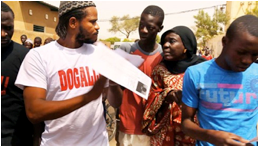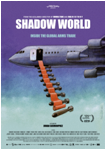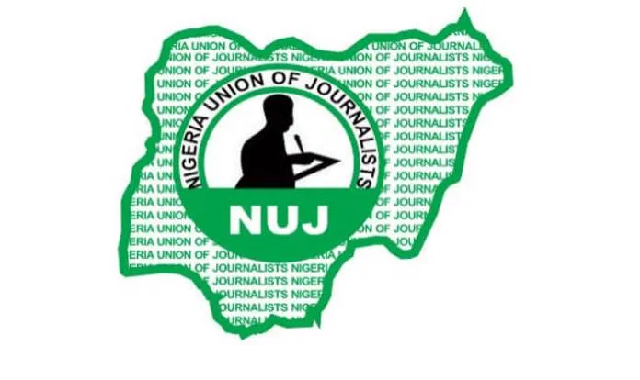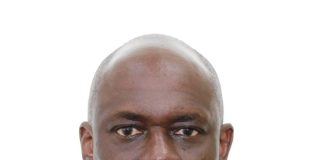AfriDocs is proud to screen some of the world’s most powerful and award-winning documentaries. This October, AfriDocs features a range of films that bravely challenge the corrupt; both in government and the private sector.

These films have been awarded internationally and shine the light on various civil-society movements across Africa that have taken on corruption and oppression from both government and business.
Shadow World, winner of The Best Documentary Feature Film Edinburgh International Film Festival 2016, reveals the shocking realities of the global arms trade – the only business that counts its profits in billions and its losses in human lives. The film is based on the book by South African, Andrew Feinstein.
The Revolution Won’t Be Televised is a recent film from Senegalese filmmaker Rama Thiaw that tells the story of Thiat and Kilifeu, Senegalese activists and underground hip-hop singers, lead this one-year revolution against President Wade, until his fall in 2012. The film was awarded at its premiere at this year’s Berlinale 2016 with the FIPRESCI Prize.
Other internationally acclaimed films will also be screened throughout the month including Joana Lipper’s The Supreme Price, winner Best Documentary Africa International Film Festival (AFRIFF), an insider’s look at Africa’s most populous nation from the perspective of women, exposing a deep history of political corruption.
AfriDocs is broadcast every THURSDAY at 19:55 Central African time (GMT + 2) on [ED] DStv Channel 190 & GOtv Channel 65 across sub-Saharan Africa. Repeats on Fridays and Sundays. For all film and scheduling information, visit www.Afridocs.net or www.facebook.com/AfriDocs.
6 October
The Supreme Price | Joanna Lipper | Nigeria | 2014 | 76 min
In 1993, Nigeria historically elected M.K.O. Abiola as president, promising to end years of military dictatorship. The election was later annulled in a military coup. Abiola was imprisoned and his wife, who became leader of the pro-democracy movement, was then assassinated, having fought against human rights violations by the military dictatorship. Their daughter, Hafsat, took over her parents’ fight for democracy, and heads a progressive women-empowering movement, trying to dismantle the patriarchal structure of Nigerian society. The film provides an unprecedented look inside of Africa’s most populous nation from the perspective of women, exposing a deep history of political corruption.
Best Documentary – Africa International Film Festival (AFRIFF)
Chips and Liver Girls | Boris Bertram, Caroline Kamya | Uganda | 2010 | 28 min
Sex, sugar daddies and modern love in Kampala, Uganda. Some girls in Kampala don’t want to get married; instead they go out with men who can pay them money for sex and their company. In Kampala, this is not seen as prostitution but as a way to climb the social ladder, and a way to obtain a comfortable and modern lifestyle. It is called ‘transactional sex’, and is common in East Africa.
One World Romania International Human Rights Documentary Festival, 2012
13 October
Shadow World | Johan Grimonprez | Global | 2016 | 94 min
Shadow World reveals the shocking realities of the global arms trade – the only business that counts its profits in billions and its losses in human lives. The film unravels a number of the world’s largest and most corrupt arms deals through those involved in perpetrating and investigating them. It illustrates why this trade accounts for almost 40% of all corruption in global trade, and how it operates in a parallel legal universe in which the national security elite who drive it are seldom prosecuted for their often illegal actions.
Best Documentary Feature Film Edinburgh International Film Festival 2016
20 October
The Revolution Won’t Be Televised | Rama Thiaw | Senegal | 2016 |110 min
Thiat and Kilifeu, Senegalese activists and underground hip-hop singers, lead this one-year revolution against President Wade, until his fall in 2012. But what is beyond a revolution? Will the two friends succeed in their 17-year long quest for recognition as musicians? By highlighting an emerging African urban youth movement, the revolution won’t be televised, but it will be documented.
Berlinale 2016 FIPRESCI Prize
27 October
Captain Thomas Sankara | Christophe Cupelin | Burkina Faso | 2014 | 52 min
A portrait composed of archives of Thomas Sankara, president of Burkina Faso between 1983 and his murder in 1987. Ready to liberate his country and transform the mentalities of his fellow citizens, contesting the world’s political order and challenging the powers of his time, Sankara stands out strongly in the history both of Africa and of the world.
Audience Award, Black Movie Film Festival 2013
Blood in the Mobile | Frank Piasecki Poulsen | DRC | 2010 | 52 min
The dark side of our cell phones. No company can say for sure that they didn’t buy conflict minerals from the Congo to produce your cell phone.
Cinema for Peace Award, Berlin 2011












